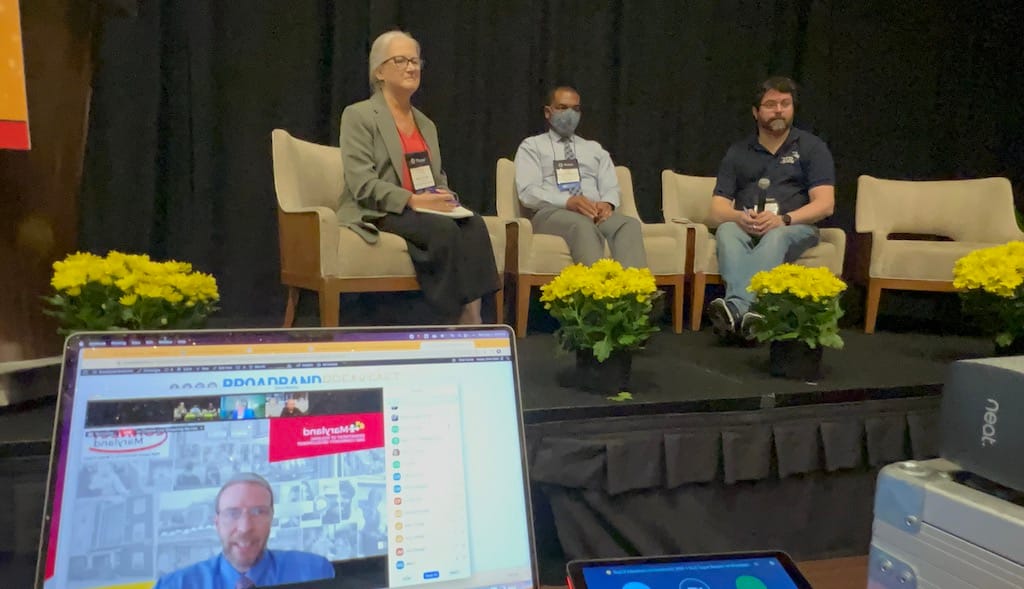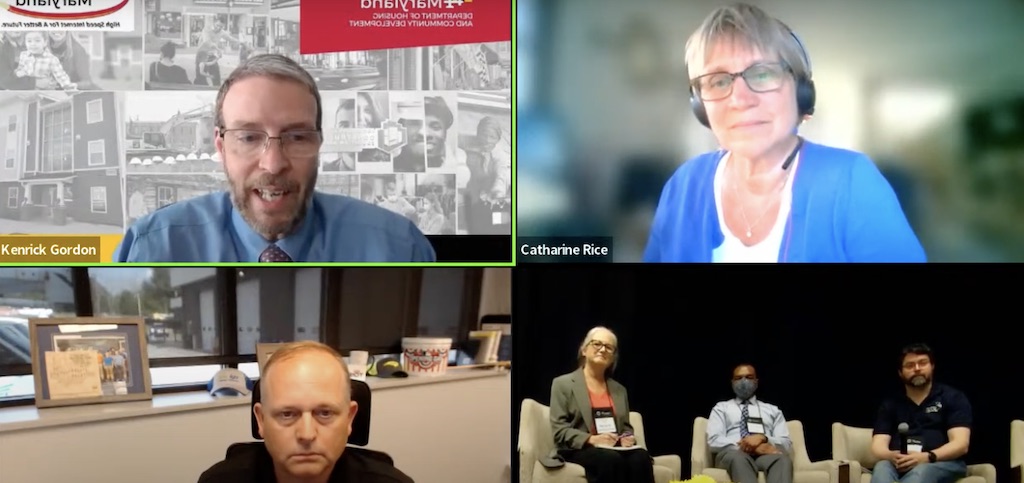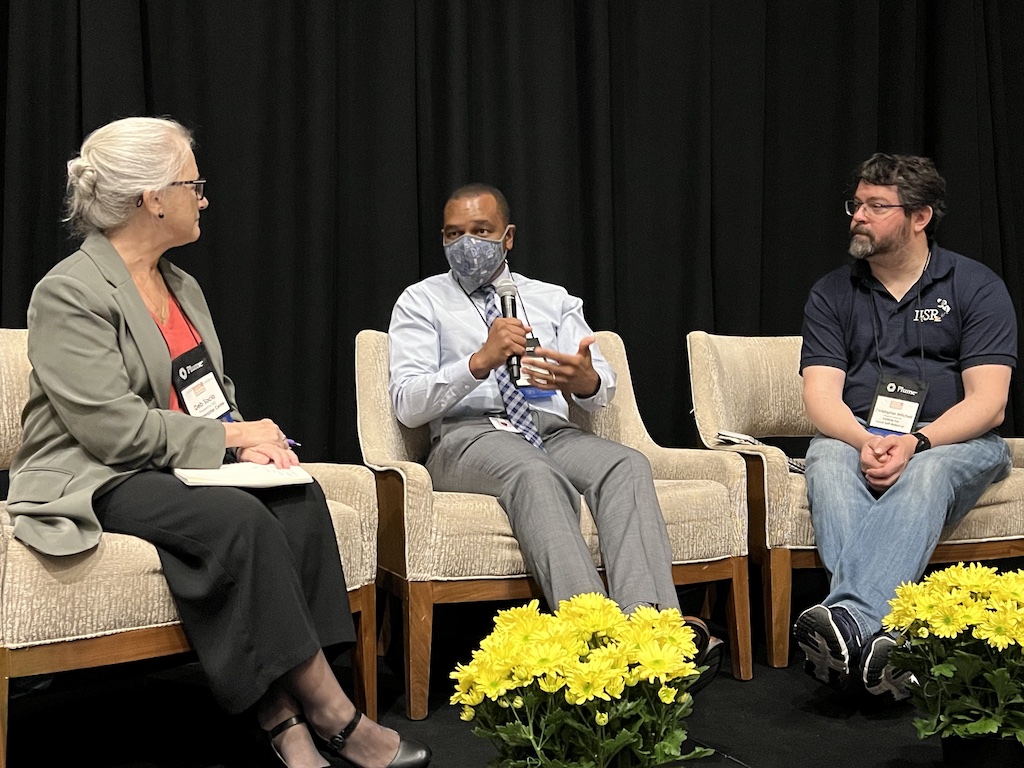Municipalities Generally Prefer Not to Own Broadband Builds, Conference Hears
Broadband leaders note cities prefer to partner than to own networks.
T.J. York

HOUSTON, May 3, 2022 – During a panel discussion Monday, broadband implementation leaders said local governments are often much more willing to help a partner organization establish a broadband network than they are to oversee construction themselves.
Speaking at Broadband Communities Magazine’s 2022 summit in Houston, Kenrick Gordon, director of the Maryland Office of Statewide Broadband, said “most local governments don’t really want to own a broadband network” and prefer to partner up and support the build.
Gordon spoke alongside Deb Socia, the CEO of the Enterprise Center, a non-profit infrastructure partner based in Chattanooga, Tennessee, which is known as the “gig city” for its city-owned gigabit fiber network.
When asked about what makes a bad partner organization for local governments in infrastructure projects, Socia, who formerly led internet-expansion organization Next Century Cities, said those who are not trusted by members of the community will not make effective broadband providers.
Many organizations have the potential to overpromise to community members, for example giving earlier timelines for broadband builds than is required, Socia said. Gordon added it is common that the expectation among some community members is that broadband projects can be built faster than other infrastructure.

Screenshot of Kenrick Gordon, Catharine Rice, Will Aycock, Deb Socia, Joshua Williams and Christopher Mitchell
Socia said trust can be garnered from the public by using a consistent script between all involved organizations, such as utilities and city government offices, so that questions can be answered in the same manner with accurate information.
She also outlined how Chattanooga was able to promote its broadband network on trusted and popular local radio stations, increasing familiarity with it in the community through on-air discussions.
Both Socia and Gordon, as well Catharine Rice, project director for the Coalition for Local Internet Choice, stated the importance of maintaining relationships and partnerships, with Rice emphasizing the need to frequently speak to state broadband offices as they generally are quite interested in working to be helpful and improve how they do their job.










Member discussion